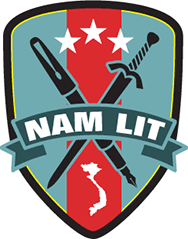 |
||||||||||||
|
November/December 2015 Elizabeth Ann Scarborough: BY SUSAN O’NEILL
The young moderator told the audience that she had tried unsuccessfully to find female authors who were actual war veterans. I bit back my initial response—What are we Vietnam vets, chopped liver?—and raised my hand. “What about Elizabeth Ann Scarborough?” I asked. Blank faces. I explained that Scarborough, who served as a nurse in Vietnam, had written thirty-eight novels—sixteen in collaboration with Anne McCaffrey—and a short story collection. All were published by big houses. Plus, her acclaimed Vietnam War novel, The Healer’s War, won a major literary prize. “The problem,” I said, “is that the prize was the 1989 Nebula Award for best Science Ficton novel. If she had published it as a mainstream author, the book would be considered Magical Realism, which earns more respect in this country. Like Tim O’Brien’s Going After Cacciato, which won a National Book Award.” The moderator cut me off and took another question. I sat down and thought, Yep, chopped liver. In fairness, I too have searched over the years for women veteran writers—specifically, Vietnam War nurses who write fiction. I’ve found memoirs, some well-known—Lynda Van Devanter’s Home Before Morning, Mary Reynolds Powell’s A World of Hurt, and Winnie Smith’s American Daughter Gone to War—and many less so. I’ve found poetry, but fiction is a rara avis. I found one fine novelist (Terry Farish, Flower Shadows) and a Twainesque short story collection (Diana Dell, A Saigon Party). But Farish was a Red Cross volunteer; and Dell, a USO employee. Civilian women who served in Vietnam are not chopped liver—but they’re not nurses. Elizabeth Ann Scarborough, however, fit the bill. She was hiding in plain sight behind the Fantasy/Sci-Fi label. Scarborough writes of fairy godmothers, haunted banjos, magicians, folklore, space travelers, and even what she calls her “science fiction writer’s obligatory end-of-the-world book and—good news—the sequel to the end-of-the-world book.” Her year as a nurse at the 95th Evac in Da Nang (1969-70) generously flavors her work, as does her wry sense of humor. She published her first book in 1982. Song of Sorcery, the first volume of the quintet Songs from the Seashell Archives, was pure fantasy: dragons, witches, and a magical curse. Six books later, in 1988, she published her Vietnam novel, and it cost her. The Healer’s War begins in a fictional China Beach hospital, where a young nurse, Lt. Kitty McCulley, receives an amulet from a dying Vietnamese patient. At the time, she has no idea of the power it gives the wearer beyond an ability to see auras around living creatures. When a new doctor is assigned to her orthopedic ward, which treats both GI and Vietnamese patients, he orders the Vietnamese discharged to local hospitals where it is almost certain they will die. McCulley uses her day off to ferry one of her patients, an orphan with an amputated leg, via helicopter to an Army colleague in Quang Nai. The helicopter is shot down. She and the boy must survive alone in hostile terrain where even allies can be lethal. In the hands of a less-skilled writer, these themes might seem stock, even trite. But Scarborough is deft. Her sense of humor is gentle and dark. Even the most opinionated of her characters are multidimensional. I empathized because she placed me on the scene, not because she forced her feelings on me. And her pacing kept me turning pages.
In this book, the fantasy element does not so much dominate the story as enhance it. The violence is real, unavoidable, bloody; the panic appropriate. The amulet provides a sort of super-powered magnification of Reiki, a method of channeling energy practiced these days by many nurses in mainstream American hospitals—although not with the concrete results wrought by Kitty McCulley. Scarborough says that writing The Healer’s War was cathartic, but it was not easy. “I didn’t realize I had PTSD at the time,” she said. The war “was just a big black hole in the middle of my life. Nobody wanted to discuss it with me or seemed able to understand.” When she finally began the book, she advised her editor that “I was going to ask for enough of an advance to cover therapy, because I was pretty sure I was going to need it.” She joined a veterans’ rap group. Her peers were male; there was little specific support for women with PTSD. As she battled her ghosts, Scarborough recounts, one civilian friend “knew it was me on the phone when I couldn’t talk for a few minutes because I was crying too hard when I called to tell him about something I remembered or realized while writing the book.” The Healer’s War was published in hardcover by Doubleday in 1988. It went into three or four paperback editions, Scarborough says, but was “one of those books that was critically acclaimed but not a commercial success.” It is the most overtly Vietnam War-connected book in her oeuvre, but by no means the only story informed by her war experience. For example, the Pataybee space-based Sci-Fi series, co-written with Anne McCaffrey, features a disabled female combat veteran with PTSD. Another book recreates the story of Snow White with a rap group of seven Vietnam veterans replicating the dwarves. It also features a young Vietnamese refugee. Her latest Seashell Archives book, The Dragon, the Witch and the Railroad (2015), is set after a great war. In her end-of-the-world series, the new Valhalla is peopled by war veterans. Among her short stories, collected in Scarborough Fair, are a tale of suicidal veterans reincarnated as a herd of unicorns (“A Rare Breed,” 1995), and one about a veteran who carries the ghost of a buddy in a cigarette lighter (“Long Time Coming Home,” written with Rick Reaser, 2002). Throughout her work, Scarborough treats her characters—especially her veterans—with great kindness. They are imperfect and their worlds are flawed, often darkly so. But she is, fantasy aside, a loving realist about people and worlds. It is this clear-eyed observation that sets her work apart and gives it heft beyond the page. She is not just a premiere Vietnam nurse-vet writer of Fantasy—and certainly not chopped liver—but a top-notch fiction writer who deserves a wider audience.
|
||||||||||||
|
|
||||||||||||
|
||||||||||||
8719 Colesville Road, Suite 100, Silver Spring. MD 20910 | www.vva.org | contact us |
||||||||||||





















 The writer’s conference panel was titled “Women Writing War.” It comprised spouses of men who fought in our latest debacles, plus one non-veteran author of a fine collection on the Afghanistan War.
The writer’s conference panel was titled “Women Writing War.” It comprised spouses of men who fought in our latest debacles, plus one non-veteran author of a fine collection on the Afghanistan War.